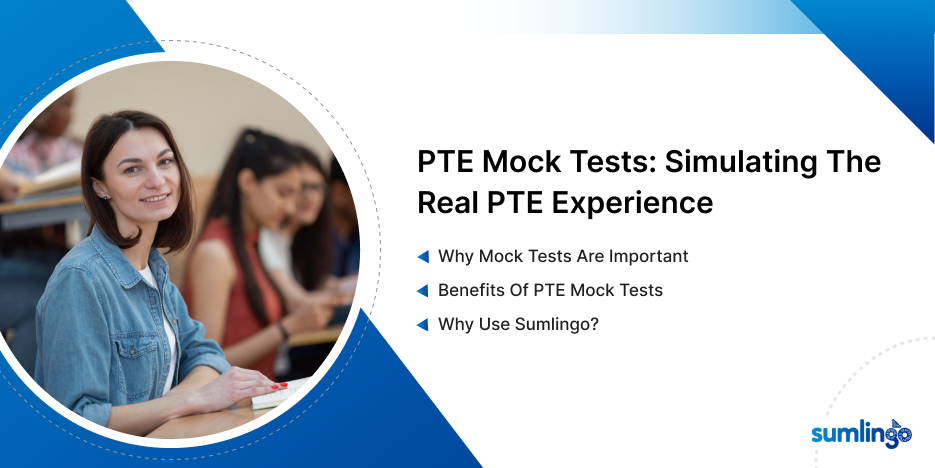For anyone preparing for the Pearson Test of English (PTE) in 2025, mastering academic vocabulary is essential. The PTE Academic exam evaluates your ability to understand and use the English academic environment. Vocabulary plays a pivotal role across all four skills, such as listening, reading, writing, and speaking. Whether you’re aiming for higher education, migration, or career advancement, a strong vocabulary can significantly impact your overall score. Certain words are commonly found in academic contexts and are useful across a range of topics, from science and technology to social issues and the humanities.
Why Vocabulary Matters in the PTE Exam
Before diving into the word list, it’s important to understand how vocabulary affects your PTE performance. In sections like Fill in the blanks (Reading), Fill in the blanks (Reading and Writing), Summarize Written Text, and Summarise Spoken Text, having a broad and precise vocabulary helps you understand context, grasp meaning quickly, and express your thoughts accurately.
Additionally, during the Speaking tasks, such as Describe Image or Retell Lecture, using precise vocabulary makes your speech more fluent and professional, leading to higher scores in fluency and pronunciation.
Are you ready to test your skills?
Vocabulary Words for the PTE Exam in 2025
Below are some of the repeated words to focus on. These terms frequently appear in academic texts and lectures, and understanding them will give you an advantage on test day.
- Abrogate – To abolish formally or annul a law, agreement, or custom
- Bifurcate – To divide into two branches or parts
- Nefarious – Wicked or criminal
- Pernicious – Harmful, especially gradually
- Enigma – A mysterious or puzzling person or thing
- Feasible – Possible and practical to do easily
- Implication – A conclusion drawn indirectly
- Justify – To show or prove something to be right
- Mitigate – To reduce the severity of something
- Preliminary – An initial step before the main event
- Quantify – To measure or express in numerical terms
- Refute – To disprove or argue against
- Skeptical – Doubtful or questioning
- Sustainable – Capable of being maintained
- Transformative – Causing a major change
- Validate – To confirm or verify accuracy
- Ambiguous – Open to multiple interpretations
- Benchmark – A standard for comparison
- Convey – To communicate or make known
- Deviate – To stray from the norm
- Elaborate – To explain in detail
- Hypothetical – Based on an assumption or theory
- Innovative – Featuring new and original ideas
- Paradigm – A model or pattern
- Viable – Capable of working successfully
- Cohesive – Forming a united whole
- Inherent – Naturally existing in something
- Marginal – Of minor importance
- Redundant – Unnecessarily repetitive
- Substantiate – To provide supporting evidence
- Alleviate – To make suffering less severe
- Articulate – To express ideas clearly
- Assert – To state firmly
- Attribute – A quality or characteristic
- 21. Bias – A prejudice or inclination
- Compile – To collect and organize data
- Conducive – Making a situation likely or possible
- Consensus – General agreement
- Constrain – To restrict or limit
- Correlate – To have a mutual relationship
- Criteria – Standards by which something is judged
- Deficit – A shortage or lack
- Derive – To obtain from a source
- Diminish – To reduce or lessen
- Discrepancy – A difference or inconsistency
- Disseminate – To spread widely (especially information)
- Distort – To twist out of shape or meaning
- Empirical – Based on observation or experience
- Endorse – To support or approve
- Enhance – To improve or increase
- Evaluate – To assess or judge
- Exacerbate – To make worse
- Exceed – To go beyond a limit
- Facilitate – To make easier
- Fluctuate – To vary irregularly
- Framework – A basic structure underlying a concept
- Ideology – A system of ideas and ideals
- Illustrate – To explain using examples
- Implement – To put into action
- Incentive – A motivation or reward
- Inhibit – To restrain or hinder
- Integrate – To combine into a whole
- Intrinsic – Belonging naturally
- Inevitable – Certain to happen
- Interpret – To explain or understand meaning
- Legislate – To make or enact laws
- Manipulate – To skillfully handle or influence
- Negate – To nullify or make ineffective
- Notion – A belief or idea
- Objective – Not influenced by personal feelings
- Omit – To leave out
- Optimize – To make the best use of
- Perspective – A point of view
- Phenomenon – A fact or event observed
- Policy – A set of rules or guidelines
- Precise – Exact and accurate
- Predict – To forecast or anticipate
- Presume – To assume without proof
- Priority – Something of high importance
- Prohibit – To forbid officially
- Promote – To support or encourage
- 28. Prospect – The possibility of something happening
- Rational – Based on logic or reason
- Reinforce – To strengthen or support
- Relevant – Closely connected or appropriate
- Restrain – To hold back or limit
- Retain – To keep or maintain
- Sector – A part or division
- Signify – To mean or indicate
- Strategy – A plan of action
- Subsequent – Coming after something else
- Supplement – To add to something to enhance it
- Surpass – To go beyond
- Synthesize – To combine ideas into a whole
- Tolerate – To allow or endure
- Trigger – To cause to happen
- Undergo – To experience or endure
- Utilize – To make use of
- Violation – The act of breaking a rule
- Voluntary – Done by choice or free will
Are you ready to test your skills?
How to Learn and Practice These Words
Simply memorizing vocabulary isn’t enough. You need to understand the context in which each word is used and be able to incorporate it naturally in both speech and writing. Here are a few strategies:
- Read Academic Articles: Focus on journals, opinion pieces, and editorials that often feature higher-level vocabulary.
- Practice Writing: Try using five new words per day in short essays or summaries.
- Listen to Lectures and Podcasts: Programs like TED Talks and university lectures often use academic vocabulary that mirrors PTE content.
- Speak Aloud: Practice speaking exercises using these words to build confidence and fluency.
The PTE Academic is a challenging but manageable exam, especially if you prepare systematically. Vocabulary is a foundational skill that influences your performance in every section. By familiarizing yourself with high-frequency academic words like those listed above, you’ll be better equipped to comprehend complex materials and express your thoughts with clarity and precision.
Here are a few final tips:
- Start early: Begin incorporating academic vocabulary into your daily study routine
- Review regularly: Repetition helps retention. Schedule weekly reviews of the words you’ve learned.
- Use words in context: Don’t just memorize definitions, practice using the words in full sentences.
- Record yourself speaking: This helps identify pronunciation issues and improve fluency.
With consistent effort, your vocabulary skills will not only improve your PTE score but also benefit your overall English communication abilities in academic and professional settings.









